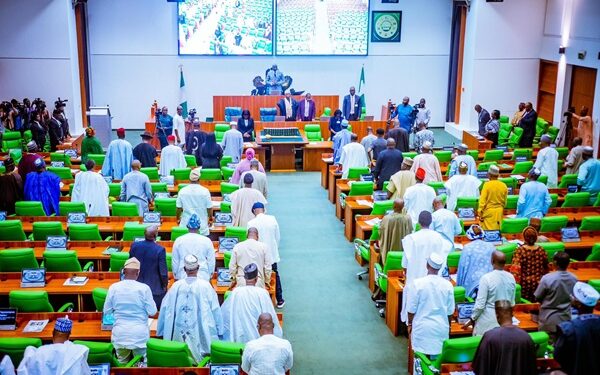The House of Representatives has mandated the Nigeria Upstream Petroleum Regulatory Commission (NUPRC) to provide details of all oil production, crude sales, and other activities in the upstream petroleum industry in the country.
The joint sitting of the House Committee on Finance and the Committee on National Planning gave the directive at the ongoing interactive session with key agencies in Abuja on Friday.
The interaction is on the 2025-2027 Medium Term Expenditure Framework (MTEF) and Fiscal Strategy Paper (FSP).
The directive was given after a presentation by the NUPRC Executive Commissioner for Economic Regulation & Strategic Planning (ECR&SP), Mr. Babajide Fasina.
He was represented by the Chief Executive Officer (CEO) of the organisation, Mr. Gbenga Komolafe, accompanied by some members of its management.
Fasina informed the committee that NUPRC derived its various revenues from oil royalty, gas royalty, concession rental, gas flat penalty, and miscellaneous oil revenues.
This, he said, which includes fines and levies, signature bonuses, and renewal of licenses.
He said that NUPRC got 4 percent Cost Of Revenue Collection (CORC) for the total revenue collected on behalf of the Federal Government.
This, he added, was credited directly to the Federation Account, and FAAC credits the 4% to the Commission.
“The CORC amounted to N114.84 billion in 2023 as against N114.38 billion in 2022.
“The amount released in 2023 includes N2.82 billion for capital expenditure, though N173.77 billion was due as 4% on the actual collections of N14.34 trillion in 2023.
“The commission also generates revenues internally, such as registration fees, license fees, fines, recoveries, among others.
He added that it generated N1.44 billion in 2023 compared to N30.08 billion in 2022, and this accounts for 1.26% of the total revenue realised in 2023 and 2.62% in 2022, respectively.
Fasina, however, informed the committee that the commission recorded a high expenditure in 2023 compared to 2022 of N11.46 billion, which he said was an increase of 10.83 percent.
“Personnel cost, which has the largest share, amounting to N82.35 billion, represents 70.19 percent of the total expenses of N117.33 billion.
“This followed by overhead costs of N31.63 billion, which accounts for 26.96 billion.”.
He said that the commission’s non-tax remittance dropped from N3.67 billion in 2022 to N1.77 billion in 2023 and an amortisation and depreciation of N246.66 million and N1.33 billion, respectively.
Rep. James Faleke, the chairman of the House Committee on Finance, who presided over the session, expressed dissatisfaction with the commission’s personnel and overhead expenditure.
This was stated by its official as contained in the documents presented before the committee.
“I’m wondering what type of organisation you have.You are paying N88 billion as salaries. How many staff do you have?
Ruling on the matter, Faleke said, “you will have to come back with all the records of all the wells that produce the oil, litre by litre, per day. How much oil do we get from here every day? (NAN)











